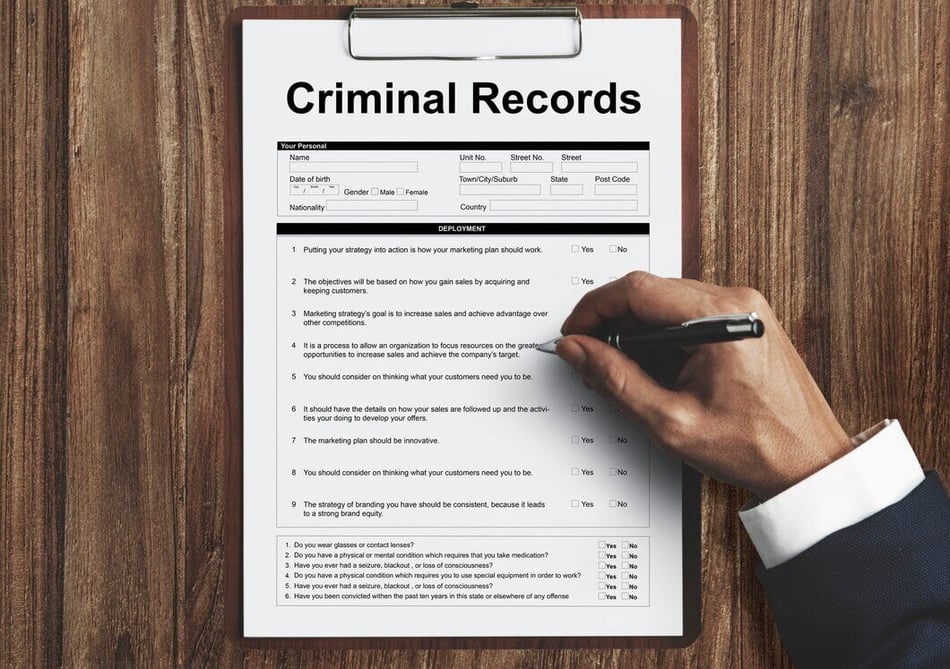If you’ve ever been pulled over and arrested for driving while intoxicated, one of your first questions might be: is a DWI considered a criminal record? The short answer is yes—a DWI is generally considered a criminal offense, and it leaves behind a permanent record that can haunt you long after your court date is over. But the full story is more layered than that.
In this comprehensive guide, we’ll walk you through everything you need to know about whether a DWI is considered a criminal record, including what that record means for your life, how it can affect your job, housing, and reputation, and what steps—if any—you can take to remove or reduce the damage.

What Qualifies as a DWI? BAC, Drugs, and Legal Definition
Defining DWI in Legal Terms
DWI stands for Driving While Intoxicated, and it’s typically charged when a person operates a motor vehicle with ablood alcohol content (BAC) of 0.08% or higher. But it’s not limited to alcohol. You can also be charged with a DWI for being under the influence of drugs—legal or illegal—that impair your ability to drive.
First Offense Doesn’t Mean Minor Offense
Many people mistakenly believe that a first-time DWI is nothing more than a traffic violation. But that’s not true. Even a first-time DWI is usually a Class B misdemeanor in most states, including Texas. This means that yes—a DWI is considered a criminal record, even if it’s your first offense.
And that criminal record doesn’t just fade away. It sticks with you. Employers can see it. Insurance companies use it against you. Landlords may deny you housing because of it.
Is a DWI Considered a Criminal Record in Every State?
A State-by-State Overview
The answer to is a DWI considered a criminal record can vary slightly depending on where you live. However, in the vast majority of U.S. states, a DWI is classified as a criminal offense, not a civil infraction.
Here’s how it usually breaks down:
- Texas, New York, California, Florida: DWI is a criminal misdemeanor for first offenses and a felony for repeated offenses.
- New Jersey: It’s technically a traffic violation but is treated similarly to a criminal charge and shows up in background checks.
- Arizona, Georgia, and others: These states enforce harsh penalties, even for first-time offenders.
No matter where you are, you should assume that a DWI is considered a criminal record unless your attorney confirms otherwise.
Misdemeanor vs. Felony DWI: What’s the Difference?
Misdemeanor DWI
A misdemeanor DWI—usually a first offense—is still a criminal conviction. Common consequences include:
- Jail time (up to 180 days)
- Fines up to $2,000
- License suspension
- Mandatory education courses
- Probation
- A criminal record that shows up in background checks
Felony DWI
If you’re wondering when is a DWI considered a criminal record with felony weight, here are some conditions that elevate the charge:
- It’s your third or more DWI
- You had a child passenger under 15
- The DWI caused serious injury or death
- You were previously convicted of intoxication assault or manslaughter

Felony DWIs come with much harsher consequences:
- 2 to 10 years in prison
- Up to $10,000 in fines
- Long-term or permanent license suspension
- A felony criminal record that lasts a lifetime
Real-Life Example: Michael’s Story
Michael, a 28-year-old marketing professional from Austin, TX, was pulled over after a friend’s wedding. He failed the breathalyzer and spent a night in jail. After court appearances, he pled guilty to a Class B misdemeanor DWI. It was his first and only offense.
But fast forward a year later—he applied for a promotion and was denied. His employer didn’t want someone with a criminal record overseeing clients.
Michael’s story is a prime example of why the question “is a DWI considered a criminal record?” matters so much. It doesn’t just affect your court outcome—it impacts your entire future.
How Long Does a DWI Stay on Your Criminal Record?
The Long-Term Reality
In most states, including Texas, a DWI conviction stays on your criminal record permanently unless you take action to remove it. That means decades from now, that one mistake could still appear in:
- Employment background checks
- Apartment applications
- Bank and loan documents
- Immigration forms
- Professional licensing applications
Some states offer expungement or sealing options, but they’re rare and often limited. In Texas, for example, you can only seek non-disclosure (record sealing) under specific conditions—and not for every DWI case.
When Can a DWI Be Expunged?
Limited Options for Expungement
If you’re wondering whether a DWI can be removed from a criminal record, the answer depends on:
- Whether your case was dismissed
- Whether you were acquitted
- Whether you successfully completed a pre-trial diversion program
In Texas, you can only get a DWI expunged if:
- You were found not guilty
- The case was dismissed without probation
- You completed a deferred adjudication for a different, lesser offense
But if you pled guilty or were convicted, you’re stuck with a criminal record unless you qualify for a non-disclosure order—which only seals it from public view, not law enforcement or government agencies.
Is a DWI Considered a Criminal Record on Background Checks?
Employers and Housing Applications
Yes, absolutely. When employers run criminal background checks, a DWI appears unless it’s been expunged or sealed. And even sealed records might show up depending on the depth of the check.
Most background checks will flag:
- Arrest records
- Court records
- Convictions
- Probation history
If you’re applying for a job, housing, or even student loans, you’ll likely have to disclose the DWI—especially if the application asks, “Have you ever been convicted of a crime?”
So, when people ask, “is a DWI considered a criminal record?”, it’s not just about what the court says. It’s about what the world sees when they look you up.
How a DWI Criminal Record Affects Your Life
Employment Consequences
Some employers have strict policies against hiring individuals with any kind of criminal history. If you work in:
- Healthcare
- Education
- Law enforcement
- Transportation
- Finance
…a DWI could disqualify you entirely.
Housing and Loans
Landlords and banks often perform background checks. A DWI conviction could suggest that you’re a “risk,” making them less likely to approve you.
Immigration Status
If you’re not a U.S. citizen, a DWI can impact your immigration—especially if it’s classified as a felony. You may face issues with:
- Visa renewals
- Green card eligibility
- Naturalization applications
Professional Licenses
Fields like law, medicine, or even real estate require background checks. A DWI on your criminal record might delay or deny your license.
Can You Drive Again After a DWI?
Yes, but with restrictions. A DWI criminal record often leads to driver’s license suspension. Once reinstated, you might have to:
- Install an ignition interlock device
- Maintain SR-22 insurance
- Complete a drug or alcohol education program
- Avoid any new offenses during probation
Defending Yourself Against a DWI Charge
Legal Options
If you’ve been arrested, but not convicted yet, there’s still time to protect your record.
A DWI defense attorney can:
- Challenge the traffic stop
- Dispute the breathalyzer accuracy
- Question officer procedures
- Seek reduced charges or dismissal

If the case is dismissed or you’re found not guilty, a criminal record may be avoided entirely.
How to Reduce the Damage
Petition for Non-Disclosure
In some cases, you may be eligible to file for an order of non-disclosure, which seals your record from public view.
Eligibility requirements:
- First-time DWI
- BAC under 0.15%
- Completed sentencing and probation
- No additional offenses within the required waiting period (2–5 years)
This won’t erase your record, but it will hide it from most employers and landlords.
What to Tell Employers
Honesty with Strategy
If you’re applying for a job and worried your DWI criminal record will show up, be upfront—but strategic.
Tips:
- Don’t lie. Most employers will find out anyway.
- Frame it as a mistake from your past.
- Emphasize rehabilitation or education steps you’ve taken since.
Saying, “Yes, I had a DWI five years ago, but I’ve completed treatment, taken full responsibility, and have had no issues since,” shows growth and responsibility.
Can You Travel with a DWI on Your Record?
Domestic and International Travel
Domestic travel isn’t usually restricted, but international travel may be.
Countries like Canada and Japan are known for denying entry to individuals with criminal records, including DWI convictions.
Always check with the country’s embassy before planning a trip if you have a DWI on your criminal record.
Common Myths About DWI and Criminal Records
Myth 1: “It’ll fall off my record in 7 years.”
Truth: Not in most states. A DWI stays unless it’s expunged or sealed.
Myth 2: “It’s just a traffic violation.”
Truth: It’s a criminal offense, and yes, a DWI is considered a criminal record.
Myth 3: “If I pay my fine, that’s it.”
Truth: Paying your fine does not erase the charge or conviction from your criminal history.

Final Thoughts: Is a DWI Considered a Criminal Record?
So, let’s circle back to the big question: is a DWI considered a criminal record? The answer is a resounding yes.
Whether it’s a misdemeanor or a felony, a DWI carries weight. It follows you long after the night of the arrest—through job applications, housing decisions, professional licensing, and more.
If you’re currently dealing with a DWI charge, now is the time to act. Speak with a lawyer. Know your rights. Fight for your future.
And if you’ve already been convicted? Don’t give up. Options like non-disclosure and rehabilitation exist. While the DWI may be on your record, it doesn’t have to define your life.

